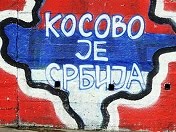An Anniversary of Heroism and Shame—the Bay of Pigs at Fifty
“They fought like tigers,” writes the CIA officer who helped train the Cubans who splashed ashore at the Bay of Pigs 50 years ago this week. “But their fight was doomed before the first man hit the beach.”
That CIA man, Grayston Lynch, knew something about fighting – and about long odds. He carried scars from Omaha Beach, the Battle of the Bulge, and Korea’s Heartbreak Ridge. But in those battles, Lynch and his band of brothers counted on the support of their commander in chief. At the Bay of Pigs, the American Grayston Lynch and his Cuban band of brothers learned — first in speechless shock and finally in burning rage — that their most powerful enemies were not Castro’s Soviet-armed soldiers massing in nearby Santa Clara, but the Ivy League’s best and brightest dithering in Washington.
Lynch trained, in his own words, “brave boys who had never before fired a shot in anger” — college students, farmers, doctors, common laborers, whites, blacks, mulattoes. They were known as La Brigada 2506, an almost precise cross-section of Cuban society of the time. The Brigada included men from every social strata and race in Cuba — from sugar cane planters and cutters, to aristocrats and their chauffeurs. But mostly, the band was comprised of the folks in between, as befit a nation with a larger middle class than most of Europe.
Short on battle experience, yes, but they were bursting with what Bonaparte and George Patton valued most in soldiers: morale. No navel-gazing about “why they hate us” or pondering the merits of regime change for them. They’d seen Castroism point-blank.
Their goals were crystal clear: firing-squads silenced, families reunited, tens of thousands freed from prisons, torture chambers and concentration camps. We see such scenes on the History Channel after our GIs took places like Manila and Munich. In 1961, newsreels could have captured much of the same without crossing oceans. When those Cuban freedom-fighters hit the beach at the Bay of Pigs 50 years ago this week, one of every 18 Cubans suffered in Castro’s Gulag. Mass graves dotted the Cuban countryside, filled with hundreds of victims of Castro and Che Guevara’s firing squads. Most of the invaders had loved-ones among the above. Modern history records few soldiers with the burning morale of the Bay of Pigs freedom-fighters.
From the lethal fury of the attack and the horrendous casualties that their troops and militia were taking, the Castro brothers and Che Guevara believed they faced at least “20,000 invading mercenaries,” as they called them. Yet it was a band of mostly civilian volunteers who were outnumbered 30-to-1.
“Where are the planes?” was heard crackling over U.S. Navy radios two days later. “Where is our ammo? Send planes or we can’t last.” Commander Jose San Roman kept pleading to the very fleet that escorted his men to the beachhead. Crazed by hunger and thirst, his men had been shooting and reloading without sleep for three days. Many were hallucinating. By then, many suspected they’d been abandoned by the Knights of Camelot.
That’s when Castro’s Soviet Howitzers opened up, huge 122 mm weapons, four batteries’ worth. They pounded 2,000 rounds into the freedom-fighters over a four-hour period. “It sounded like the end of the world,” one said later. “Rommel’s crack Afrika Corps broke and ran under a similar bombardment,” wrote Haynes Johnson in his book, “The Bay of Pigs.” By that time, the invaders were dazed, delirious with fatigue, thirst and hunger, too deafened by the bombardment to even hear orders. But these men were in no mood to emulate Rommel’s crack Afrika Corps by retreating. Instead, they were fortified by a resolve no conquering troops could ever call upon –the burning duty to free their nation.
“If things get rough,” the heartsick Grayston Lynch radioed back, “we can come in and evacuate you.”
“We will not be evacuated.” San Roman roared back to his friend Lynch. “We came here to fight! We don’t want evacuation. We want more ammo! We want planes! This ends here!”
Camelot’s criminal idiocy finally brought Adm. Arleigh Burke of the Joint Chiefs of Staff, who was receiving the battlefield pleas, to the brink of mutiny. Years before, Adm. Burke sailed thousands of miles to smash his nation’s enemies at the Battle of Leyte Gulf. Now, he was chief of Naval Operations and stood aghast as new enemies were being given sanctuary 90 miles away. The fighting admiral was livid. They say his face was beet red and his facial veins were popping as he faced down his commander-in-chief that fateful night of April 18, 1961. “Mr. President, two planes from the Essex.” The Essex was the U.S. carrier just offshore from the beachhead. “That’s all those Cuban boys need, Mr. President. Let me order.”
JFK was in white tails and a bow tie that evening, having just emerged from an elegant social gathering. “Burke,” he replied. “We can’t get involved in this.”
“We put those Cuban boys there, Mr. President!” the fighting admiral exploded. “By God, we are involved.”
Admiral Burke’s pleas also proved futile.
The freedom-fighters’ spent ammo inevitably forced a retreat. Castro’s jets and Sea Furies were roaming overhead at will and tens of thousands of his Soviet-led and armed troops were closing in. The Castro planes now concentrated on strafing the helpless, ammo-less freedom-fighters.
“Can’t continue,” Lynch’s radio crackled — it was San Roman again. “Have nothing left to fight with …out of ammo…Russian tanks in view….destroying my equipment.”
“Tears flooded my eyes,” wrote Grayston Lynch. “For the first time in my 37 years I was ashamed of my country.”
When the smoke cleared and their ammo had been expended to the very last bullet, when a hundred of them lay dead and hundreds more wounded, after three days of relentless battle, barely 1,400 of them — without air support from the U.S. carriers just offshore and without a single supporting shot by naval artillery — had squared off against 41,000 Castro troops and the dictator’s entire air force and squadrons of Soviet tanks. The Cuban freedom-fighters inflicted casualties of 20 to 1 against their Soviet-armed and led enemies. This is a feat of arms that still amazes professional military men.
“They fought magnificently and were not defeated,” stressed Marine Col. Jack Hawkins, a multi-decorated WWII and Korean War vet, who helped train them. “They were abandoned on the beach without the supplies and support promised by their sponsor, the government of the United States.”
“We shall pay any price, bear any burden, meet any hardship, support any friend, oppose any foe, in order to assure the survival and the success of liberty,” proclaimed Lynch and Hawkin’s commander-in-chief, Kennedy, just three months earlier.


























5 comentarii :
cea mai mare problema a europei nu este economia, nici macar islamistii, nici macar alunecarea eurobirocratlor inspre barbaria totalitara (in numele progresului), cea mai mare problema este demografia, pt ca ea singura le agraveaza pe toate celelalte, iar solutia gasita de eurocrati e importul a inca 50.000.000 de imigranti, musulmani, care va duce definitiv la disparitia europei..
Economişti de la Bruxelles sînt de părere că Marea Britanie şi ţările din UE vor “avea nevoie” de 56 de milioane de muncitori imigranţi pînă în anul 2050 pentru a compensa “declinul demografic” cauzat de natalitatea în scădere şi creştere mortalităţii în Europa.
Da. De fapt, vor să răstoarne echilibrul electoral în favoarea UERSS, definitiv, naturalizând înca 10% din numărul de locuitori ai UE:
http://www.express.co.uk/posts/view/65628/secret-plot-to-let-50million-african-workers-into-eudavid%20hamiltonmore
Aveti rabdare pana incep sa vina chinezii, pentru ca asta e agenda, de fapt.
Am mai auzit o variantă - Pakistanul ar permite trecerea de trupe chineze către Orientul Mijlociu, printr-o şosea strategică, ce traversează masivul Karakorum.
Adica, în viitor, înţelegerea ar exista deja.
Trimiteți un comentariu